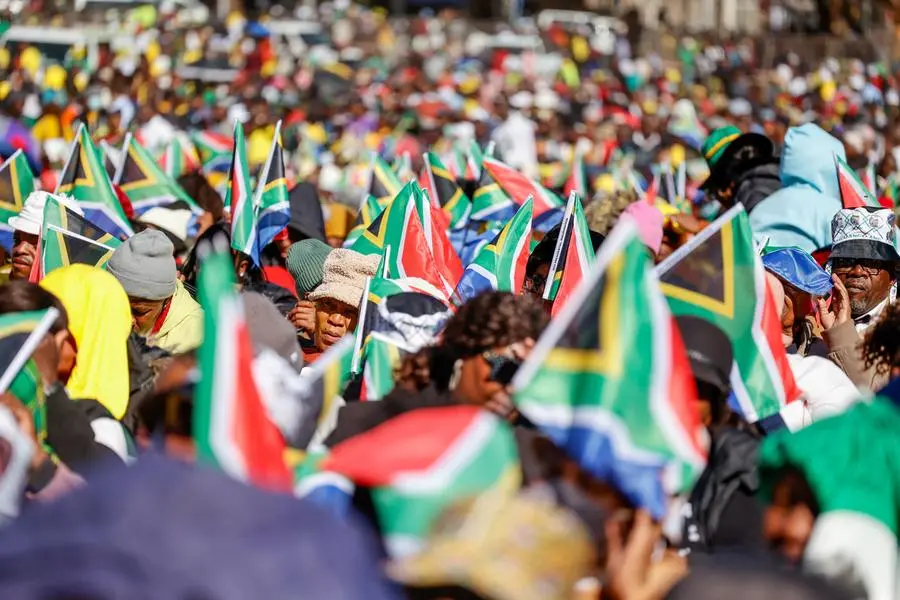PHOTO
South Africa’s recent elections have ushered in a significant political transformation, marking a new chapter in the nation’s democratic journey. The election results have led to the formation of a government of national unity, a move that many hope will bring stability, inclusivity, and renewed economic growth to the country.
27.7 million South Africans registered to vote ahead of the elections on May 29th. However, on election day, a mere 16.2 million votes were cast, yielding the lowest voter turnout of 58.64% in South Africa’s 30-year democratic history. The African National Congress (ANC), the historical ruling party, faced stiff competition from opposition parties such as the Democratic Alliance (DA) and the Economic Freedom Fighters (EFF). For the first time since the end of apartheid in 1994, the once-dominant party (ANC) needed to enter into negotiations with other parties to form a Government of National Unity (GNU).
The new GNU is composed of the African National Congress, Democratic Alliance, Inkatha Freedom Party, Patriotic Alliance, and GOOD. This GNU aims to bridge the political divides that have often hindered South Africa’s progress. President Cyril Ramaphosa, leader of the ANC, has been re-elected to lead this GNU. His leadership is seen as crucial in navigating the complexities of coalition politics and driving the nation towards a more inclusive and prosperous future.
One of the first major tasks for the new government is the formation of a balanced and effective cabinet. The anticipated new cabinet is expected to reflect the diverse political spectrum of the GNU, incorporating members from all five parties. This inclusive approach aims to ensure that different voices and perspectives are represented in the decision-making process, fostering a sense of collective ownership and responsibility.
Key portfolios such as finance, health, education, and infrastructure are expected to be helmed by experienced and competent individuals from various parties. This strategic allocation of ministries is designed to harness the strengths of each partner, thereby enhancing the overall effectiveness and productiveness.
The new government faces significant challenges, including high unemployment and economic inequality. However, there is a cautious optimism that this new government can bring about meaningful change. The spirit of cooperation and shared governance is expected to foster innovative solutions to the country’s pressing issues.
In conclusion, South Africa’s recent elections have paved the way for a government of national unity, reflecting the electorate’s desire for collaborative and inclusive governance. The anticipated new cabinet, with its diverse representation, holds the promise of driving the country towards stability, economic growth, and social progress. As the nation embarks on this new political journey, there is hope that unity and cooperation will prevail, leading to a brighter future for all South Africans.
Arab Times | © Copyright 2024, All Rights Reserved Provided by SyndiGate Media Inc. (Syndigate.info).





















